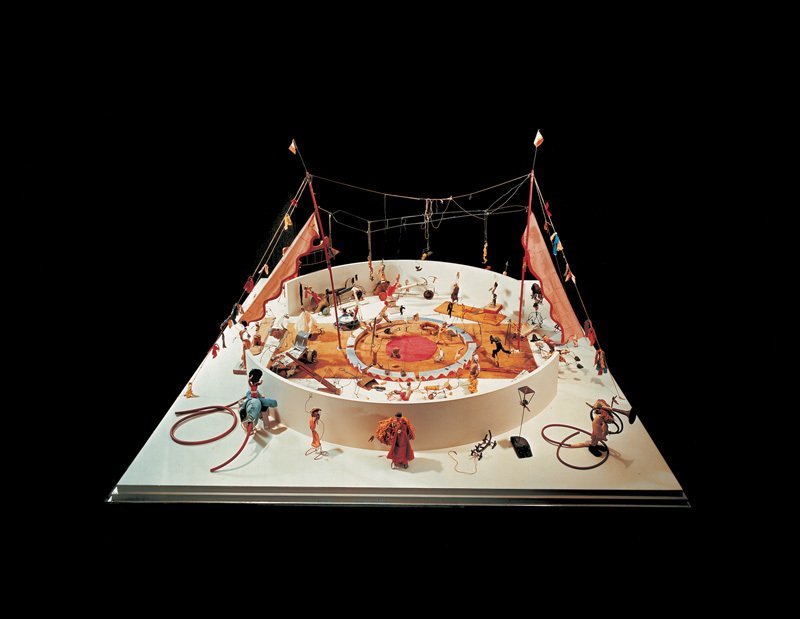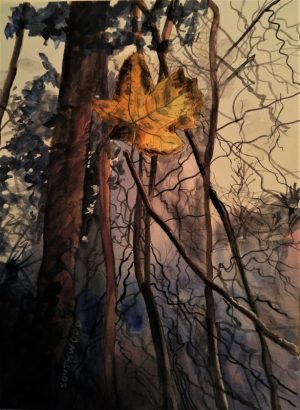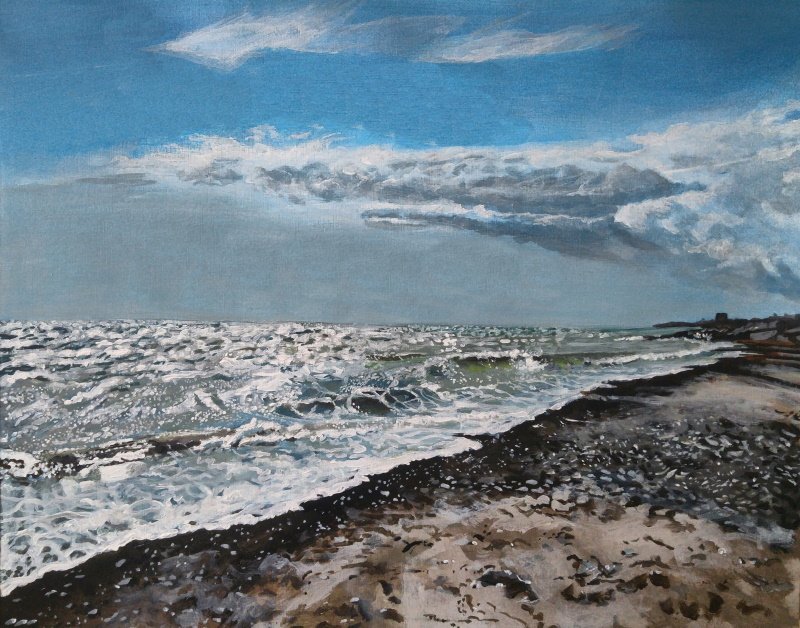Waves – a journey into the quantum nature of being
Waves are reminders that we live in a natural universe with connections to it right in front of us, both present yet absent. There is no Life, no Death.
We live in a world bereft of play. We thing that we are at play, but we have lost the free will to even understand it. Our alternatives are consumption and passivity.
On a crowded train, I see a young man studying the Evening Standard with such an expression of rapt intensity that it might be the Book of Kells. Another wrestles with the hard plastic surround of a new electronic device. I wince as he tears, crinkles and scrapples at the transparent moulding. Finally, he gets to the treasure beneath. He removes it and looks at it, turns it over and looks once at the other side. Then he feeds it to his pack. He pulls out the instruction leaflet from the moulding (more scrappling and popping). A glance, and it too is fed to the bag. I watch him slot the empty moulding into the crack beside his seat. He sighs and pulls out his iPhone.

Some signs:
I thought for a time that narcissism was the worst crime of all (rather than a sign of yearning) and I believed that my anxiety, as both Kierkegaard and Sartre clearly explained, stemmed from my freedom to choose one path over another. Nowadays I am more inclined to side with Marx when he wrote:
Men [sic] make their own history, but they do not make it as they please; they do not make it under self-selected circumstances, but under circumstances existing already, given and transmitted from the past. The tradition of all dead generations weighs like a nightmare on the brains of the living.
Karl Marx, The Eighteenth Brumaire of Louis Bonaparte.
Some signs:
The most superficial study of social media reveals a body of human beings who seem to revel in their contempt for compassion and kindness. I interpret this as a way of counteracting unbearable shame. In the face of my own despair and shame I have shaken my problems of ‘how to be’, much as Eliot’s madman shook a dead geranium, and I have been unsurprised, at various gatherings and conclaves, to meet quite defensive responses. Once or twice I have been heard.
So here I ask again: what do we do in the world, and how can we be? I ask if it is enough, after some workshop or seminar, to retire to my nest replete, the monster sated. Could I do something else, form an affinity group, write poetry and books (if I could)? Or is this manic defence? Should I join a collective or a smallholding or is this retreat? I look at the brilliant cutesy crafts on Pinterest but I despair of making. I ask how can we play.
The new nature writers work so hard to avoid the trap of the pastoral, yet are almost always in it – the yearning takes them into prelapsarian fantasies of clean water, fresh air and sweet soil. It is an understandable lapse. I pretend that the water I drink isn’t laced with the effluent from hundreds of dairy herds and chicken farms. I imagine that the tang in the air is wood smoke, not diesel particulate. The dark soil of my dreams gives off a heady scent of leaf mould and minerals. It is free of pesticides and herbicides. I hope my vegetables come from this rich humus rather than the toxic substrate that is leached into the sea as a consequence of bad husbandry. I challenge my own paralysis.
I also challenge the version of psychology that offers workshops in superiority. In these, ‘experts’ give opinions on how ‘a minimum level of security is a precondition for care-seeking behaviour and forms the core coping mechanism against distress, loss, life-threats and psychosis’. In the absence of such security, we are told to ‘recognise incoherence of mind in incoherence of language including: role reversals, narcissistic preoccupations and bizarre language strategies’.
Is it so unusual, and deserving of pathologising, that the benighted patient, hoodwinked by the prospect of wellness, wants to usurp the throne of the petty tyrant sitting opposite? Is it so odd, that she wants to return the agenda to the dysmorphia of self and not the proscriptive requirement for coherence? In language, we are known. The keening sounds of our grief, the monosyllables of distrust and shame, the droning litany of oppression. We enter therapy with a fantasy of clear exposition. We hope that the shaman will respond with reassurance and insight. But in the consulting room sometimes all we can muster is defensive anomie. Then we fall victim to the numbing effects of rationalisation and normalisation. Where is the play in this dismal science?
Some time ago there was a flurry of internet interest in the ‘Euthanasia Coaster‘, the compelling idea of the Lithuanian designer and artist Julijonas Urbonas. It was designed to deliver an astonishing death, via the thrill of the ultimate rollercoaster. In the blog Design and Violence, Urbonas’ design was taken to task by the neuroscientist Antonio Damasio. In his review, Damasio wrote ‘The Euthanasia Coaster is not fun at all as art, and it is preposterous as a technical device. Curiously, it does work as provocation, regardless of intent. So be it. Mostly it is sad, sad, sad.’
Replying to this suspicious antipathy a reader who suffers from constant pain wrote that perhaps he or she might want to seek exactly such a dramatic release: ‘Doing so through the experience of something so amazing that the human body cannot withstand it sounds a whole lot better to me than a boring grey room. To remove all ‘violence’ from humanity would be to utterly sanitise life, to remove the experience of anything but greys. Certainly the spectre of interpersonal violence is undesirable, but I WISH to be violently happy, violently sad, violently moved. I wish to feel violent acceleration and violent relief. Conflating violence with anything that challenges us is to remove all value from the human experience, to paint the world grey.’
Damasio completely fails to understand the euthanasia coaster as a very serious form of play.
Urban dislocation, unimaginable violence perpetrated from afar, powerlessness. The filmmaker Adam Curtis reflects on the confusion of modern life in his two short films on what he called ‘oh-dearism’. In the second film, he profiled the ‘grey cardinal’ of the Kremlin, Vladislav Surkov. A master of disinformation, Surkov’s avowed role is to wage ‘non-linear war’, shapeshifted and undefinable, confusing political groups and public opinion alike. Amidst the chaos, strings can be pulled and enemies disempowered (the war in Ukraine is an example). Curtis goes on to draw a plausible comparison between Surkov and George Osborne. He says that ‘a constant vaudeville of contradictory stories makes it impossible for a coherent opposition to emerge’. In the midst of this toxic theatre the ‘success stories’ are the entrepreneurs of the low waged low-value jobs, nail bars and coffee shops, the new Luddites.

As I see 60 years on the horizon, my life (perhaps comprehensively) eviscerated and crushed, and the estate of the world itself undone, the question of how to live with this shrivelling and loss seems more urgent to me than ever before. I feel with Joscelyn Godwin, who wrote:
The outlook is bleak for those souls nourished only by the junk food and poisonous additives of popular culture. How will it be for them to enter the soul’s domain with no songs to sing, no poetry to charm Pluto and Persephone?
Godwin, Joscelyn. The Golden Thread. 2007
And I might add that we cannot enter the soul’s domain without knowing how to play.
How much bleaker then, in this brave new world of disinformation? Yet beneath the GCHQ radar, things are stirring. As mass protest is ignored by the mainstream media, radical endeavour takes a different shape: community gardening and allotment activism; Flatpack democracy; local currencies and local energy; mesh networks and the Restart Project. There are hundreds more of these optimistic community-led innovations. Taking the action to connect, making the jump out of depression into the community, that is the vital moment. But to what extent might we see these efforts as minimal? Are they merely (in a phrase that stays with me) ‘Fucking at the margins’? Are these the jerks of the dying body? Or are they visions of the terrifying reality of living after the apocalypse? Patrick Harpur writes:
Truth does not lie with this image or that but in the process of imagining; it is not an absolute but a way, transforming us en route
Harpur, Patrick. Daimonic Reality. 2003
I titled this piece ‘Bad faith’ after Sartre’s dreary mauvaise foi. As far as it has been bad, my failure in faith has not been in my rejection of limitless options, a concept that anyone suffering from depression would heartily condemn. Rather it has been in my failure to be able to play. Perhaps all our failures of faith lie there too. We don’t have to regress, but we could learn to play in a modified form.
This link takes you to Carlos Vilardebó’s 1961 film of the American sculptor Alexander Calder performing his Cirque de Calder to the Parisian avant-garde. Calder’s performance, sometimes witty, sometimes tongue in cheek, is sophisticated play. There is darkness here too, and parts of the performance arouse an ambivalent response. But besides those doubts, there is a delight in the old man becoming the engrossed child. See how he is enraptured with his toys and the unfolding of his drama. Calder, the ‘inventor’ of the mobile, had a major retrospective at the Tate Modern. I discovered this a week after recovering an interest in automata and kinetic sculpture. Carl Jung himself could hardly have been more pleased.

And this: a recent research paper described an examination of seventy dogs over a two year period. The report studied 1,893 defaecations and 5,582 urinations. It revealed that dogs who were not leashed or influenced in movement (my italics) were naturally inclined to relieve themselves in “axial orientation” with the earth’s magnetic field. Patrick Harpur again:
To “explain” UFOs as plasma vortices is to say no more than that fairies are fallen angels.
Harpur, Patrick. Daimonic Reality. 2003
I have no particular wish to know why dogs piss in orientation with the earth’s magnetic field, but to know that they do, when not leashed or influenced in movement, is a very great delight.
If you have enjoyed this article then please consider sending me a donation to help with hosting costs.




